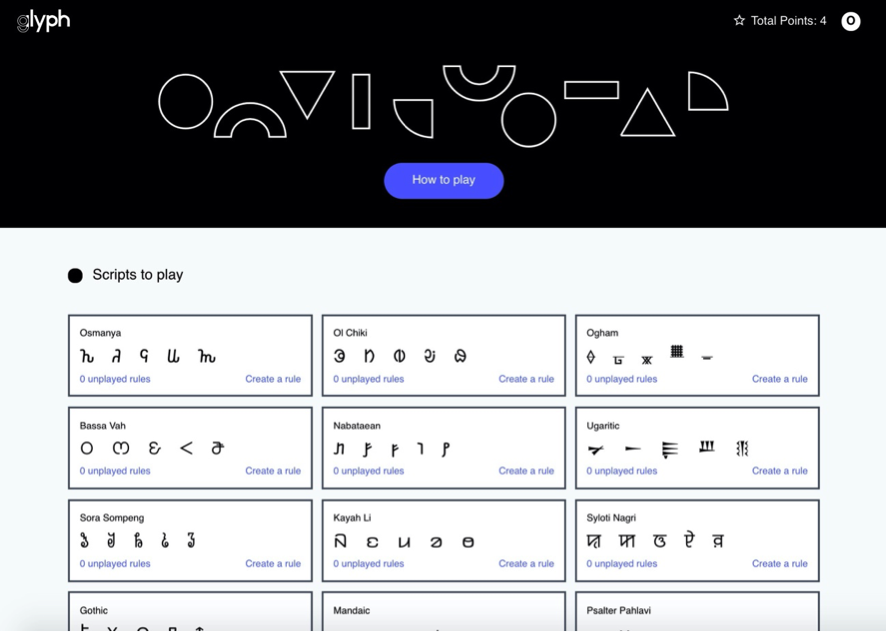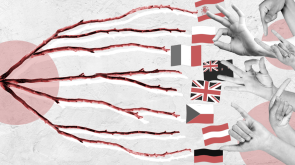
An online game to crowdsource the science of letter shapes
Scientists at the Max Planck Institute for the Science of Human History, Harvard, and PSL university, have designed a gaming applet where players compete to classify the letter shapes of the world's writing systems. Researchers will better understand how letter shapes evolve to be distinctive and informative thanks to this crowdsourced typology.
A team of cognitive scientists led by Yoolim Kim (postdoctoral researcher at the Harvard Korean Institute and the Max Planck Institute for the Science of Human History) and Olivier Morin (researcher at the ENS-PSL, member of the Institut Jean Nicod on secondment to the Max Planck Institute for the Science of Human History) just launched a free gaming applet.
The game, called "glyph", allows players to compete with each other to sort letter shapes from various writing systems into categories. The most original and informative classifications win extra points.
This project is funded by the Scripta I PSL program of the Ecole Pratique des Hautes Etudes - PSL. It also involves researchers from the Santa Fe Institute and the Musée de l’Homme (Paris).

Yoolim Kim explains: "Science is good at sorting things into classifications. Chemists have the table of elements, biologists have the system of species — there are rules to sort even Pokémon! But there is no such thing for letters. For some writing, yes, but not for all the letters in the world. We want to change this. But instead of asking specialists, we're asking the public for help."

Glyph App - Short Video from MPI-SHH / Scientific Services on Vimeo.
A visual grammar of letter shapes
Crowdsourcing — asking a large number of players to contribute to a typology of letter shapes — will allow researchers to obtain reproducible and transparent classification rules. They hope to build a grammar of letter shapes, achieving for the shape of writing what linguists have done for the sounds of language.
The first question they will attempt to answer with this data concerns the distinctiveness of letters: how do letters in a script manage to be different enough from one another without being too difficult to process.
Glyphs App - Long Video.mp4 from MPI-SHH / Scientific Services on Vimeo.



